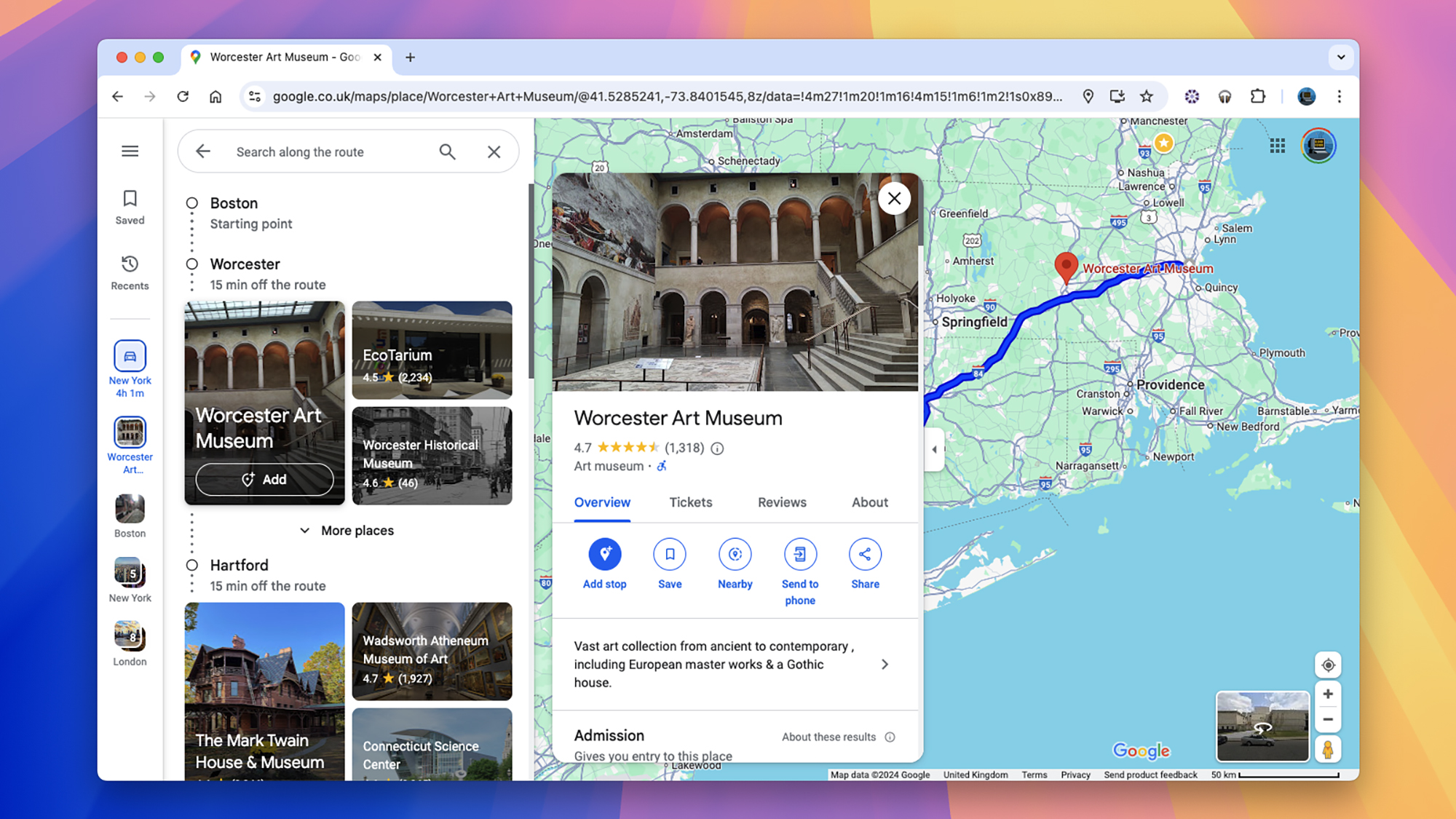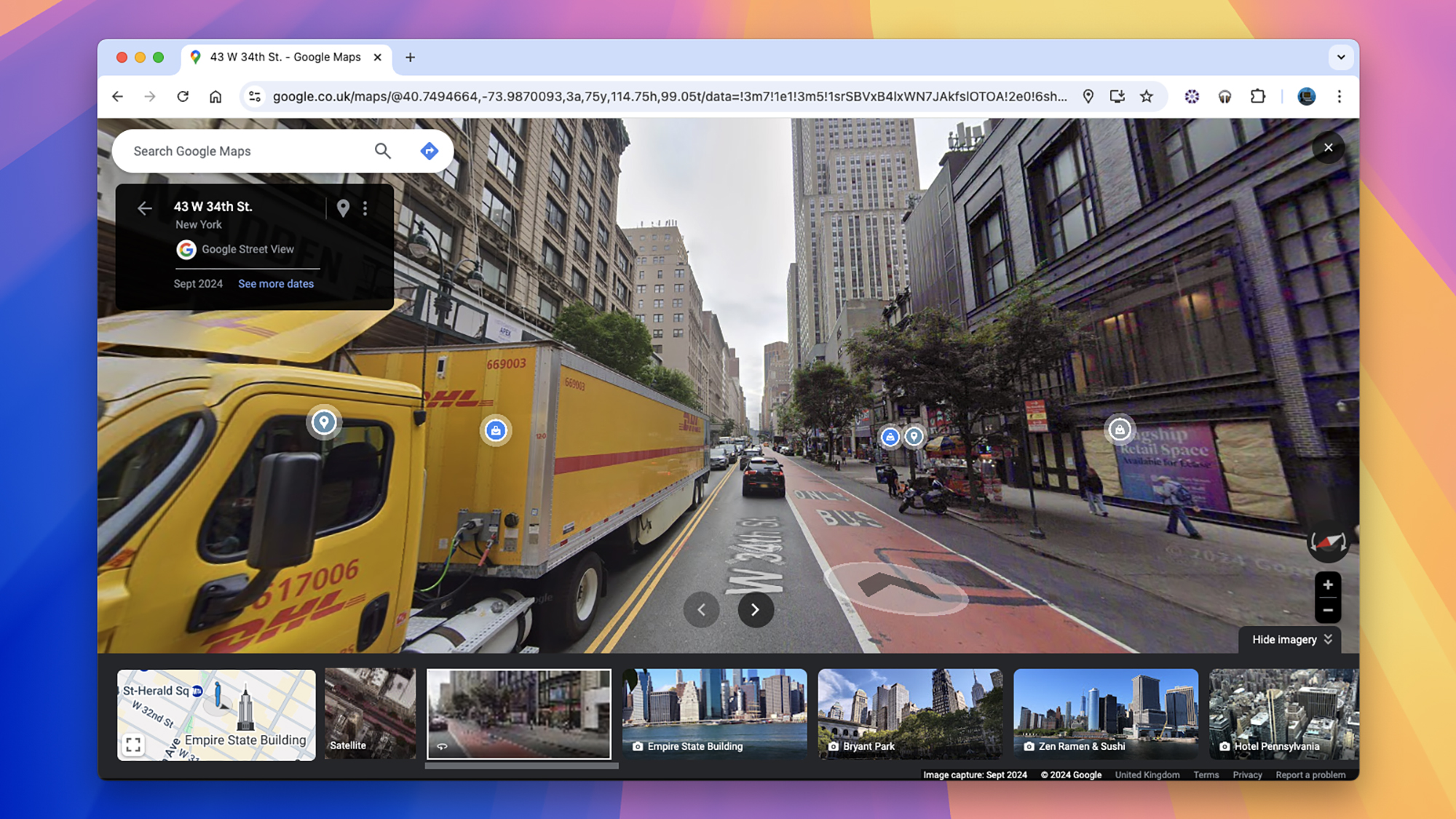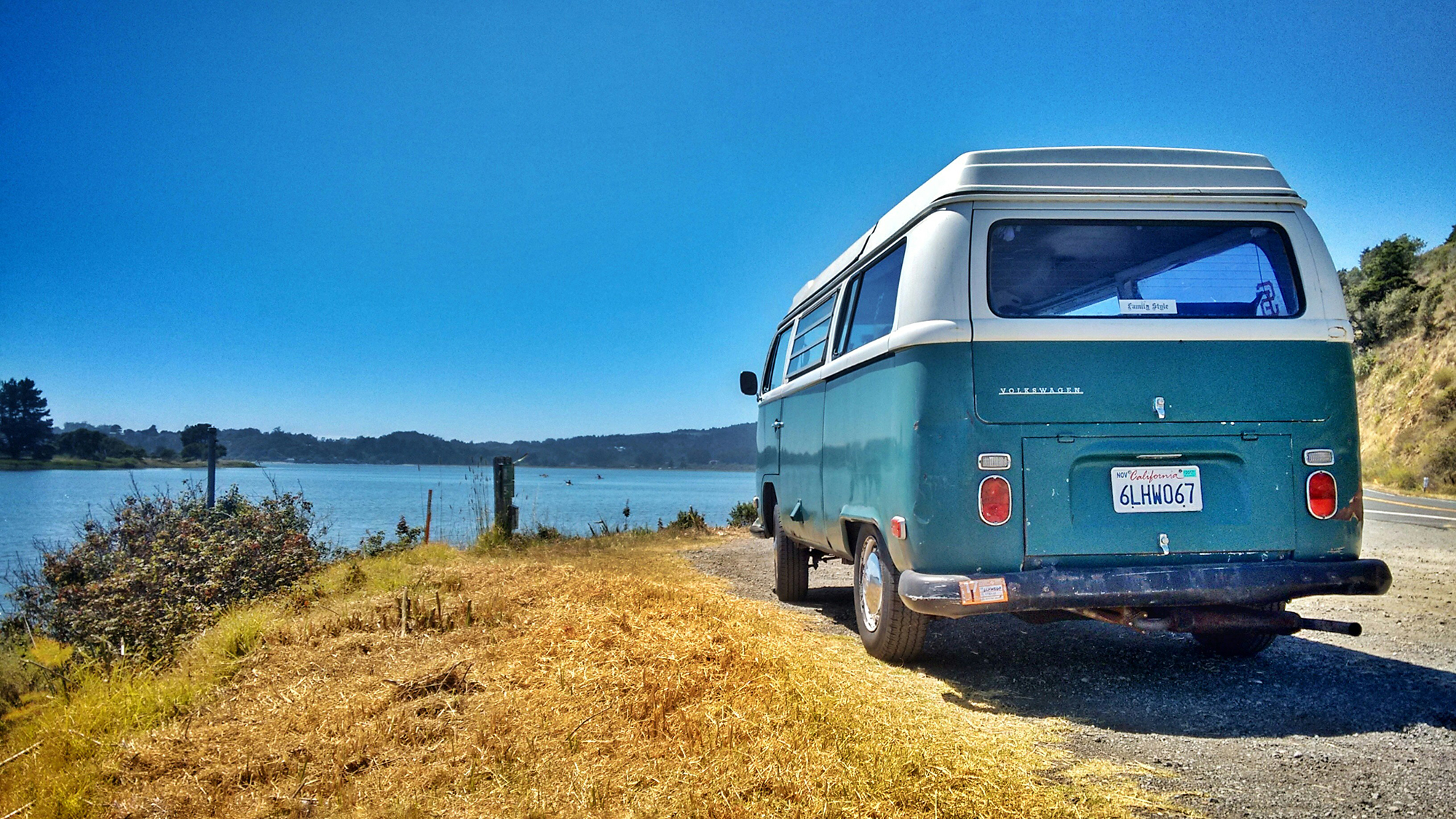You’re probably familiar with the ways you can use Google Maps to get from A to B, or to look up reviews on the nearest coffee shop, or to find your way when lost—but the apps for Android, iOS, and the web also come with some specific features that can help in planning a road trip.
These features include being able to look up, label, and save places ahead of time—not just in the moment—and making sure you’ve got a better idea of what traffic conditions will be like in the future. There are also some recently added options for finding places of interest along a certain route.
We’ll go through these features as they’re found in Google Maps on the web, which is probably the preferable option for making plans—but you’ll find the same options available in the mobile apps too.
Adding destinations and checking traffic
Find a spot anywhere on Google Maps and you can click Directions on its info card to find out how to get there—you’ll be invited to set a starting point, so select the starting point for your road trip. You can then use Add destination to add more stops, and click and drag on the locations (using the handles on the left) to change their order in the journey.
The estimated travel times you’ll be shown are based on current traffic conditions. If you click Live traffic at the bottom of the map and then change it to Typical traffic, you can see what the conditions will probably be at certain times and on certain days. This will give you a better idea of how long your trip will take—you could even use the tool to decide the best time to leave.
If this isn’t a solo road trip, you can click Copy link next to the estimated travel time, and you get a link copied to the clipboard to share with your fellow travelers. You can also save the link somewhere if you want to get back to it later.
Find new spots along the route

Google Maps has improved a lot in the way it can help you find places along a designated route. Not so long ago, searching for more places to stop would’ve wiped your route from the map, but that’s no longer the case.
Click in the Search along the route box at the top of the map to look for tourist attractions, hotels, gas stations, restaurants, grocery stores, or whatever you need. You can browse the list of results and click Add stop next to anything that’s of interest—your route then gets modified accordingly.
If you’re stuck for inspiration, check out the Explore new places along this route panel on the left. These will mostly be tourist attractions and landmarks, and you’ll be shown how far out of your way each one is. Each suggestion has an Add button if you want to add it to your road trip.
Set up and share lists

We’ve already talked about sharing your route with other people, but there’s another feature you can use for this: Lists. You can create lists of places you’re going to stop at, or attractions in a certain city you want to check out, or whatever you want.
To start creating a list, bring up a place’s info card by searching for it or clicking on it on the map. On the info card, click Save, then add the spot to one of your current lists or create a new one (all you have to do is choose a name). Your lists show up as thumbnails on the left-hand side of the map, and you can also find them by clicking the menu button (top left) and then Saved.
Once you’re in a list, you can add notes to specific places, and remove entries from the list. Importantly, you can also share lists with your fellow road trippers: Click the three dots (top right) inside a list, then choose Sharing options. You can then all contribute to the places in the list, and the notes attached to them.
More road trip tips

Don’t forget Street View inside Google Maps: Click any road on the map, then choose Street View to see how it looks at street level. You can use this to get prepared for difficult road junctions ahead of time, or to take a closer look at potential road trip stops.
Be sure to dive deep into all the details on the info cards for specific places. You can check out reviews, photos, opening times, menus, prices, and more besides—you’ll be thankful that you put in some research ahead of time if it means you don’t turn up somewhere to find it closed.
Finally, make sure you’re aware of all the layers you can show by clicking on the Layers button in the lower left corner: The Satellite view is useful for scoping out places, for example, while the Cycling layer shows you trails and unpaved roads, which is sometimes helpful for planning stops and hikes during your trip.


